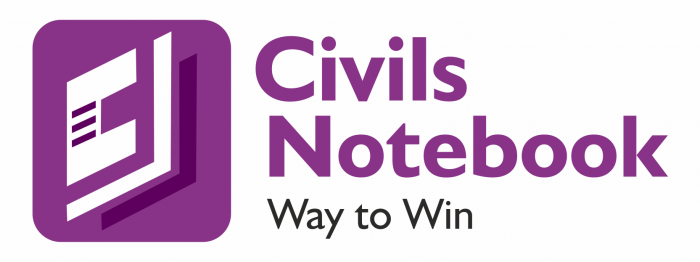D.Y. Chandrachud takes charge as the 50th Chief Justice of India
- Justice Dhananjaya Yashwant Chandrachudwas sworn in as the 50th Chief Justice of India (CJI) by President Droupadi Murmu at a brief ceremony held at the Rashtrapati Bhavan on Wednesday
- CJI Chandrachud took the oath in English and in the name of God in the presence of Vice President and Rajya Sabha Chairperson Jagdeep Dhankhar, Lok Sabha Speaker Om Birla, Defence Minister Rajnath Singh, Home Minister Amit Shah, and Law Minister Kiren Rijiju.
- Prime Minister Narendra Modi, who was not present at the event, tweeted, ““Congratulations to Dr Justice D Y Chandrachud on being sworn in as India’s Chief Justice. Wishing him a fruitful tenure ahead.”
- His predecessor, Justice Uday Umesh Lalit, who demitted office on Tuesday, was also present at the oath-taking ceremony.
- Justice Chandrachud as CJI will have a term of two years and will head India’s judiciary until November 10, 2024, a day before he completes 65 years.
- His father, V. Chandrachud, holds the distinction of being the longest serving CJI, who headed the judiciary from February 22, 1978 to July 11, 1985
- CJI Chandrachud has been part of the Benches that delivered path-breaking judgments on decriminalising same-sex relations, after it partially struck down Section 377 of the Indian Penal Code.
- He has also been part of Benches that rule on the validity of the Aadhaar scheme, the Sabarimala issue, and paved the way for permanent commission for women officers in the Armed Forces.
About CJI Chandrachud
- CJI Chandrachud was designated as a senior advocate by the Bombay High Court in June 1998 and became Additional Solicitor General in the same year till his appointment as a judge in the Bombay High Court on March 29, 2000.
- He went on to become the Chief Justice of the Allahabad High Court from October 31, 2013 until he was elevated to the top court in May 2016
- A graduate in Economics from St. Stephen’s College, CJI Chandrachud completed his LLB from the Campus Law Centre of Delhi University, and obtained his LLM degree and a Doctorate in Juridical Sciences from the Harvard Law School in the U.S.
- He practised law at the Supreme Court and the Bombay High Court, and has been a Visiting Professor of Comparative Constitutional Law at the University of Mumbai.
U.K. court turns down Nirav Modi’s appeal against extradition
- The UK High Court has rejected fugitive diamond merchant Nirav Modi’s appeal against extradition on mental health grounds to India to face money laundering and fraud charges.
- Modi and his uncle, Mehul Choksi, are the main accused in the Punjab National Bank scam and they both left India before the details of the fraud came to light on January 16, 2018
About Extradition
- Extradition is the process by which one state, upon the request of another, affects the return of a person for trial for a crime punishable by the laws of the requesting state and committed outside the state of refuge.
- The Supreme Court defined extradition as the delivery on the part of one State to another of those whom it is desired to deal with for crimes of which they have been accused or convicted and are justifiable in the Courts of the other State.
- Extraditable persons include those charged with a crime but not yet tried, those tried and convicted who have escaped custody, and those convicted in absentia.
Extradition Law in India:
- In India, the extradition of a fugitive criminal is governed under the Indian Extradition Act, 1962.
- This is for both extraditing persons to India and from India to foreign countries.
- The basis of the extradition could be a treaty between India and another country.
- At present India has an Extradition treaty with more than 40 countries and Extradition agreement with 11 countries.
Extradition Treaty:
-
- Section 2(d) of The Indian Extradition Act 1962 defines an ‘Extradition Treaty’ as a Treaty, Agreement or Arrangement made by India with a Foreign State, relating to the extradition of fugitive criminals which extends to and is binding on India. Extradition treaties are traditionally bilateral in character.
Delhi’s air quality improves to ‘poor’ category
- The air quality in Delhi improved on Wednesday in the back favourable wind speed but remained in the poor category.
- The Air Quality Index(AQI) stood at 262 at 7 am compared to 303 at 4 pm on Tuesday and 312 at 4 pm on Monday.
- The national capital recorded “very poor” air quality on Tuesday due to residents flouting the ban on firecrackers during Diwali night but the pollution levels for the next day were the lowest since 2015 owing to the warm and windier weather conditions diluting the impact.
- Delhi’s AQI a day after Diwali stood at 360 in 2015, 445 in 2016, 403 in 2017, 390 in 2018, 368 in 2019, 435 in 2020 and 462 in 2021.
- Over the last two years, Delhi and its surrounding areas had witnessed “severe” air quality following Diwali day.
- The air quality dropped significantly due to intense smog enveloping the region as stubble burning peaked during November and calm winds also trapped the pollutants.
- An AQI between zero and 50 is considered good, 51 and 100 satisfactory, 101 and 200 moderate, 201 and 300 poor, 301 and 400 very poor, and 401 and 500 severe.
About Air Quality Index
- The Air Quality Index is acquired by measuring emissions of eight major pollutants present in the air:
- Particulate matter (PM2.5)
- Particulate matter (PM10),
- Ozone (O3),
- Carbon Monoxide (CO),
- Nitrogen Dioxide (NO2),
- Sulphur Dioxide (SO2),
- Lead (Pb)
- Ammonia (NH3) emissions
Letter seeking removal of T.N. Governor submitted
The memorandum signed by Lok Sabha and and Rajya Sabha members belonging to the ruling DMK-led Secular Progressive Alliance seeking removal of Tamil Nadu Governor R.N. Ravi has been submitted to Rashtrapati Bhavan, DMK said in an official statement.
Law related to Removal of Governor
- Under Article 155 and 156 of the Constitution, a Governor is appointed by the President and holds office “during the pleasure of the President”.
- If this pleasure is withdrawn before completion of the five-year term, the Governor has to step down.
- As the President works on the aid and advice of the Prime Minister and the council of ministers, in effect, the Governor can be appointed and removed by the central government.
More than one crore voters are above the age of eighty in India
- 49 In lakh, the number of voters aged above 100 in India, according to Chief Election Commissioner Rajiv Kumar.
- Moreover, there are 1.8 crore voters over 80 years of age, Mr. Kumar said after flagging off a bicycle rally in Pune to create awareness about voter registration as part of the national launch of a special summary revision of the voters’ list
IMF agrees to fund Bangladesh to fight economic crisis
- 5In $ billion, the amount the International Monetary Fund (IMF) agreed to loan Bangladesh to stabilise the country’s economy.
- Bangladesh is the third South Asian nation after Sri Lanka and Pakistan to secure a bailout package from the IMF to tide over the sharp rise in food and energy prices caused by the pandemic and inflation due to the Russia-Ukraine war.
Tushar Mehta to lead Indian delegation to UNHRC
- Solicitor General Tushar Mehta will lead the official Indian delegation to the Human Rights Council where the Fourth Universal Periodic Review will take place on Thursday, the Ministry of External Affairs has announced.
- A press release stated that India has been “engaged constructively” with members of the UNHRC and others in the United Nations to support human rights across the world.
- The announcement came hours before the session where countries like the United States, U.K., Belgium, Germany and Spain are expected to raise issues like the Citizenship Amendment Act and incidents of “hate speech” and the hijab issue of Karnataka.
About UNHRC
- The Human Rights Council is an inter-governmental body within the United Nations system responsible for strengthening the promotion and protection of human right around the world.
Formation of UNHRC
- The Council was created by the United Nations General Assembly in 2006. It replaced the former United Nations Commission on Human Rights.
- The Office of the High Commissioner for Human Rights (OHCHR) serves as the Secretariat of the Human Rights Council.
- OHCHR is headquartered in Geneva, Switzerland.
Members of UNHRC
- It is made up of 47 United Nations Member States which are elected by the UN General Assembly (UNGA).
- The UNGA takes into account the candidate States’ contribution to the promotion and protection of human rights, as well as their voluntary pledges and commitments in this regard.
- The Council’s Membership is based on equitable geographical distribution. Seats are distributed as follows:
- African States: 13 seats
- Asia-Pacific States: 13 seats
- Latin American and Caribbean States: 8 seats
- Western European and other States: 7 seats
- Eastern European States: 6 seats
- Members of the Council serve for a period of three years and are not eligible for immediate re-election after serving two consecutive terms.
Justice Rituraj Awasthi has been appointed as the chairperson of the 22nd Law Commission of India
International Accounting Day observed on 10th November
Vikram-S is the first private sector rocket to be launched into space in from a Telangana-based aerospace company
Kerala won the Responsible Tourism Global Award at London World Travel Mart
With Denmark India has recently signed MoU on cooperation in the field of Water Resources Development and Management
Source : THE HINDU

